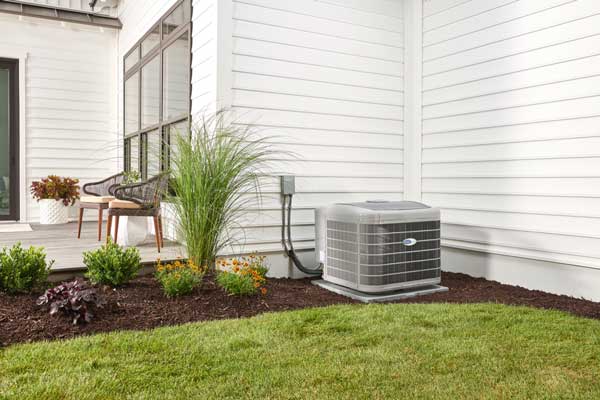
Posted: June 12, 2022 at 3:20 pm
By: Lakes Region HVAC
Acronyms are very common in the HVAC industry. When researching heating or cooling systems for your home, these terms and acronyms can cause confusion and frustration. If you are in the market for a new air conditioner, it is important to know the role BTUs play in AC efficiency and effectiveness.
The acronym BTU stands for British Thermal Unit.
A BTU is the unit used to measure thermal energy. According to the U.S. Energy Information Administration, one BTU refers to the amount of energy that is required to increase the temperature of a pound of water by 1°F. When applied to heating and air conditioning units, it is the measurement expressed in terms of how many BTUs per hour a product can add or remove heat from the air.
If your air conditioner requires more energy to run, you will spend significantly more on your energy bill, and those charges add up over time. Additionally, knowing the BTU of a system allows you to choose the right system for the size of a space.

Consumer reports has come up with this helpful guideline (but it is important to point out that to determine the best size of a cooling system for your home we consider a number of variables: square footage, geographical location, ceiling height, number of windows, insulation and floorplan):
The higher the BTU rating, the more powerful the system. This does not mean your home should have a cooling system with the highest BTU rating, however. If your air conditioner is too powerful it will cool your home too quickly. While that sounds like a good thing it actually prevents the system from removing unwanted moisture from the air. It will also cycle on and off more frequently leading to more wear and tear, higher energy bills, breakdowns and a shorter lifespan for the unit. Alternatively, if your cooling system does not have enough BTUs it will constantly run trying to keep your home cool. This also leads to higher bills and too much wear and tear for the unit.
For this reason, among others, we recommend having a trained HVAC professional determine the appropriately sized unit for your home.
If this article is useful to you, or if you know someone who can benefit from it, please Share it.
Have another question? Contact the Lakes Region team, and we’ll find your solution.
Our clients are homeowners, small business owners, and corporations—and one could be you by calling 603-286-2290 or emailing info@lrhvac.com.
Lakes Region’s expert service technicians and installers are trained in the latest advancements in heating and cooling technologies. We'll help you select the correct comfort system for your home, ensuring that your equipment operates at the highest efficiency — giving you the lowest monthly operating cost.
Visit our website.
LRHVAC’s office hours: Monday - Friday
7:30-4:30
Phone: 603-286-2290
Mail: 86 Bay Hill Rd., Northfield, NH 03276
Email:
Email us